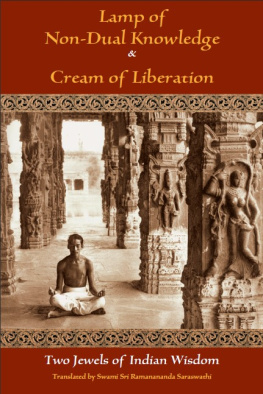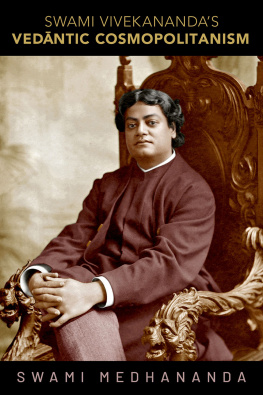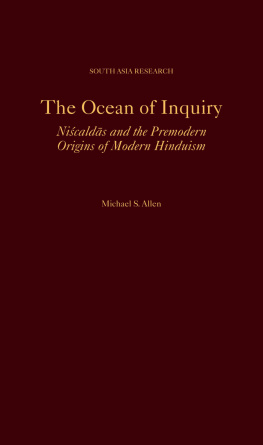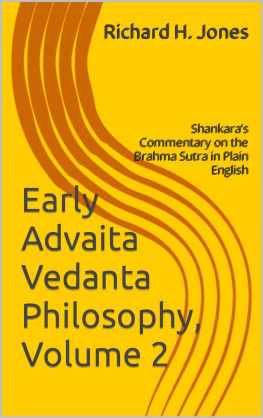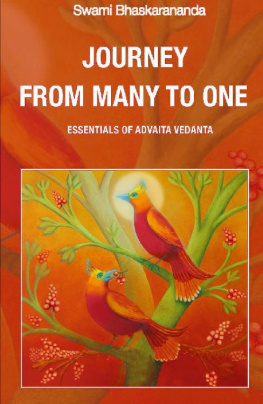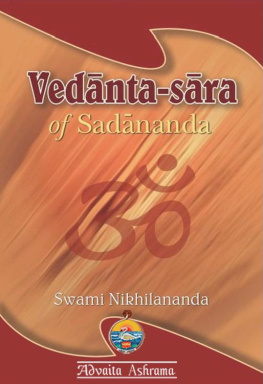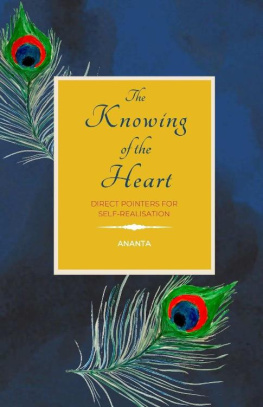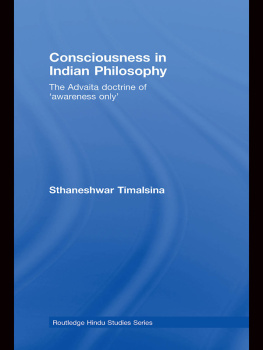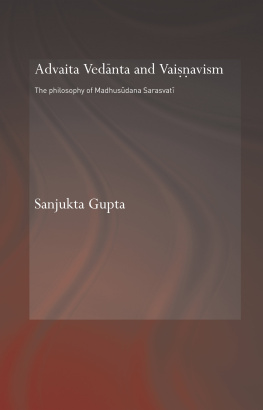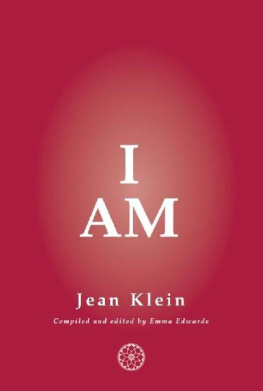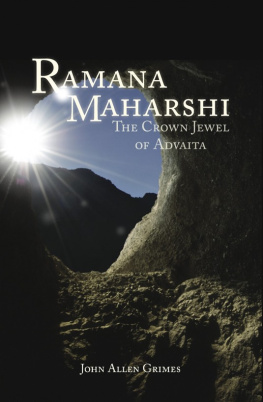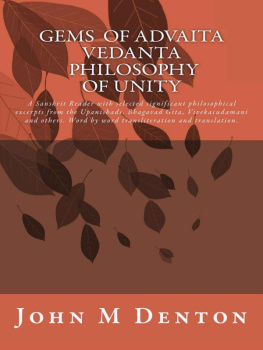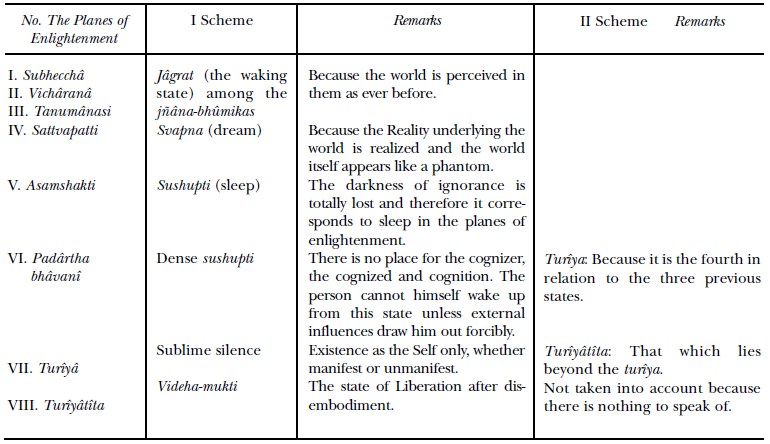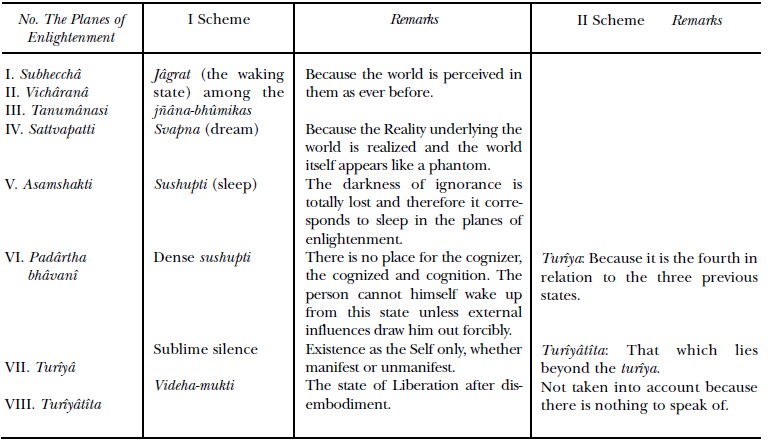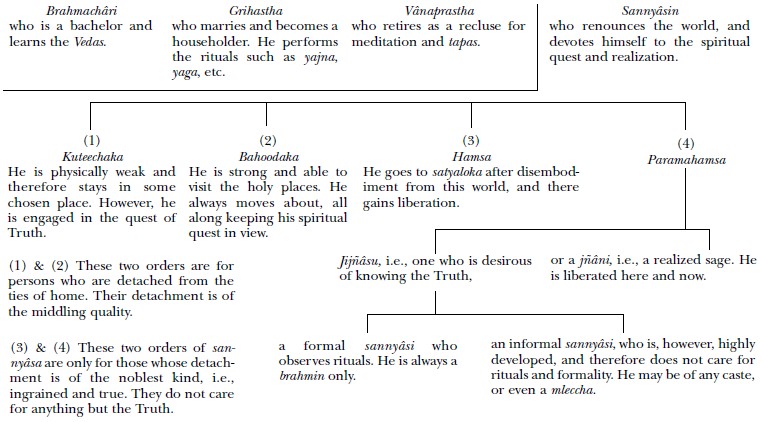About this Book
on Lamp of Non-Dual Knowledge
(Advaita Bodha Deepika)
Advaita or non-dual philosophy is the most satisfactory explanation of mans relationship to the all-pervading cosmic consciousness. Its message of all-enveloping equality is the panacea to the ills of modern society.
Right from the time of the Upanishads, through Adi Sankara to Ramana, great preceptors have written treatises on Advaita philosophy and its powerful instrument of Self-enquiry. The epitome of all these voluminous writings has been later condensed by Karapatra Swami into a book of twelve chapters called Sri Advaita Bodha Deepika, The Lamp of Non-Dual Knowledge.
This book contains the English translation of the first eight chapters of the original Sanskrit text. The last four chapters have never been found. The work is a beautiful and clear treatise on Advaita Vedanta: how ignorance is super-imposed on the non-dual Self (Adhyaropa), its removal (apavada), the means of accomplishing it (sadhana) consisting of various methodologies, annihilation of latencies (vasanakhayam), the play of the mind in projecting the individual self, the world and the personal God, and the significance of Self-enquiry as the perfect instrument leading to the extinction of mind and the dawning of Self-realization. This is a veritable manual of non-dual philosophy.
V. S. Ramanan, President, Sri Ramanasramam, India
on Cream of Liberation
(Kaivalya Navaneeta)
In language easy to understand, the author gives a remarkably clear exposition of the tenets of Advaita. Its English translation will serve to make it known to a larger circle of readers and thus extend its usefulness.
V. A. Devasenapathi, Professor of Philosophy, University of Madras
The philosophy of the Advaita school is beyond a doubt the most satisfactory exposition of the transcendental relationship between the human soul and cosmic consciousness. Its all-encompassing quality is the message that the world desperately needs today to put an end to all internecine differences.
The Advaita philosophy is subtle and needs a sincere application by the student. In the past, the difficulty was compounded by the fact that the medium in which it was conveyed was generally classical Sanskrit, not known to the majority of the people. Only during the last four centuries have works in Tamil imparting Advaita philosophy begun to appear. Out of these thirty or more works, the best known is Tandavaraya Swamis KaivalyaNavaneeta, The Cream of Liberation.
The work is presented in the form of a discussion between an earnest student and an enlightened preceptor. The great merit of this book consists of the lucid manner in which the subtle and abstract principles of this school of philosophy are presented with a number of examples. There is no doubt that the earnest seeker who studies this scripture will get a lucid understanding of Advaita philosophy and have all lurking doubts and objections removed.
V. S. Ramanan, President, Sri Ramanasramam, India
APPENDIX I
APPENDIX II
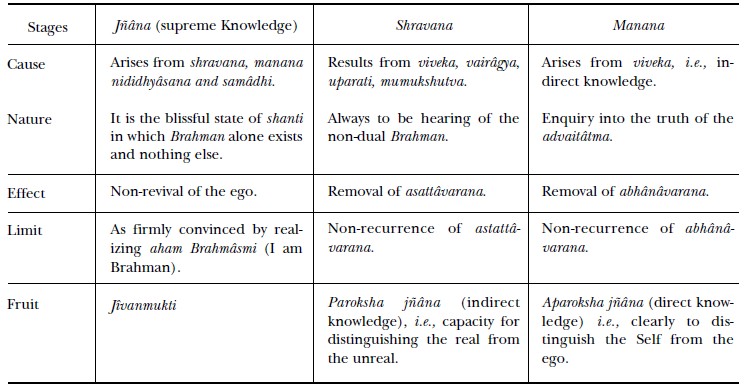
APPENDIX I
APPENDIX II
Chapter I
Adhyropa
On Superimposition
7. Greatly afflicted by the three kinds of distress (tpatraya), intensely seeking release from bondage so as to be free from this painful existence, a disciple distinguished by long practice of the four-fold sdhana, approaches a worthy Master and prays:
8-12. Lord, Master, ocean of mercy, I surrender to you! Pray save me!
Master: Save you from what?
Disciple: From the fear of recurring births and deaths.
Master: Leave samsra and fear not.
Disciple: Unable to cross this vast ocean of samsra, I fear recurring births and deaths. So I have surrendered to you. It is for you to save me!
Master: What can I do for you?
Disciple: Save me. I have no other refuge. Just as water is the only thing to put out the flames when the hair of ones head is on fire, so also a sage such as you is the sole refuge of people like me, who are on fire from the three kinds of distress. You are free from the illusion of samsra, calm in mind and sunk deep in the incomparable Bliss of Brahman, which is beginningless and endless. Certainly you can save this poor creature. Pray do!
Master: What is it to me if you suffer?
Disciple: Saints like you cannot bear to see others suffer, as a father his child. Motiveless is your love for all beings. You are the guru common to all, the only boat to carry us across this ocean of samsra.
Master: Now, what makes you suffer?Disciple: Bitten by the cruel serpent of painful samsra, I am dazed and I suffer. Master, pray save me from this burning hell and kindly tell me how I can be free.
13-17. M.: Well said, my son! You are intelligent and well-disciplined. There is no need to prove your competence to be a disciple. Your words clearly show that you are fit. Now look here, my child!
In the supreme Self of Being-Knowledge-Bliss (Sat-Chit-nanda) who can be the transmigrating being? How can this samsra be? What could have given rise to it? And how and whence can it arise itself? Being the non-dual Reality, how can you be deluded? With nothing separate in deep sleep, not having changed in any manner, and having slept soundly and peacefully, a fool on waking shouts out, Alas, I am lost! How can you, the changeless, formless, supreme, blissful Self shout forth, I transmigrate. I am miserable! and so on? Truly there is neither birth nor death; no one to be born or to die; nothing of the kind!
D.: What does exist then?
M.: There exists only the beginningless, endless, non-dual, never-bound, ever-free, pure, aware, single, Supreme, BlissKnowledge.
18. D.: If so, tell me how this mighty, massive delusion of samsra veils me in dense darkness like a mass of clouds in the rainy season.
19-20. M.: What can be said of the power of this illusion (My)? As a man mistakes a post for a man, so also you mistake the non-dual, perfect Self for an individual. Being deluded you are miserable. But how does this illusion arise? Like a dream in sleep, this false samsra appears in the illusion of ignorance which is itself unreal. Hence your mistake.
21-24. D.: What is the ignorance?
M.: Listen. In the body appears a phantom, the I-conceit, to claim the body for itself, and it is called jva. This jva always has an outward bent, taking the world to be real and himself to be the doer and experiencer of pleasures and pains, desirous of this and that, undiscriminating, not once remembering his true nature, nor enquiring, Who am I? What is this world? but wandering in the samsra

